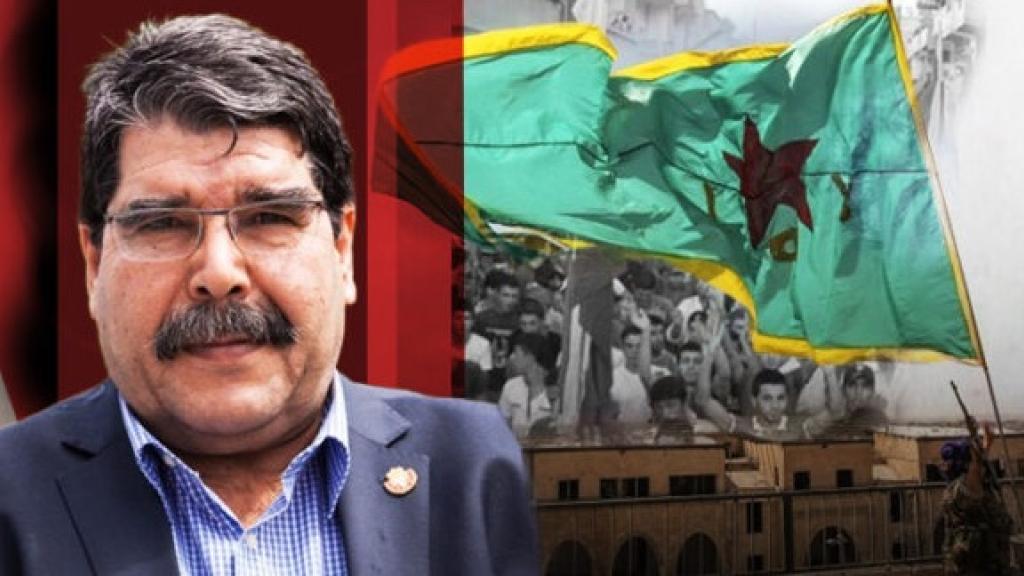Salih Muslim: The Kurdish perspective on Syria’s future

First published at Medya News.
We are all witnessing the ongoing developments in the Middle East, where extremism is being eradicated and old regimes dismantled to establish new systems aligned with modern standards, creating a more stable and open world for trade and capital. Given the Middle East’s geostrategic importance, the conflict is escalating rapidly, with some describing it as a third world war due to the direct or proxy involvement of major powers in Syria.
The Middle East at a crossroads
The situation in Syria began as a popular revolution demanding freedom and democracy. However, external interventions have diverted it into a civil war, resulting in hundreds of thousands of deaths and millions displaced, alongside widespread destruction of infrastructure. Due to the regime’s weakness and the withdrawal of Iranian and Russian support, jihadist factions succeeded in ousting the regime from Syrian cities, culminating in its fall on 8 December 2024.
Syria’s Revolution and the aftermath of the regime’s collapse
The regime’s collapse is a significant historical event that has brought joy to all Syrians, liberating them from over sixty years of tyranny. Yet, the critical question remains: can we achieve the Syria for which the revolution was fought? At present, Hay’at Tahrir al-Sham (HTS) is an entity comprising various groups united under the goal of establishing an ‘Islamic State’ governed by Sharia law. In contrast, another group, the Syrian National Army (SNA), consists of organisations created by Turkey to intervene in Syrian affairs and suppress the Kurdish people, as well as remnants of communities that survived historical genocides committed by Turkey. The SNA also includes remnants of ISIS who fled to Turkish-occupied areas.
Targeting the Kurds and the symbol of Kobani
As Hay’at Tahrir al-Sham (HTS) advances towards Damascus, the Syrian National Army (SNA) targets Kurdish regions, committing atrocities comparable to those of ISIS, such as beheadings and identity-based killings, while forcibly displacing residents from refugee camps established by Afrin residents displaced during their city’s occupation in 2018. Their assaults continue against Kurdish areas, including Kobani, [Kobanê]which has become a global symbol of resistance against ISIS but still faces aggression on its outskirts.
The path to coexistence and dialogue
We in the Autonomous Administration strive to communicate with the new rulers in Damascus through intermediaries because we believe that coexistence is possible if they respect the unique characteristics and diversity of Syrian components. We do not seek to hold them accountable for past mistakes against the Syrian people. Conversely, the opposing faction receives orders from Turkey. We have expressed our readiness to engage in dialogue with Turkey to foster peaceful neighbourly relations. However, Turkey’s apprehension regarding anything Kurdish poses a barrier to peace and friendly relations. We believe that if Turkey resolves its Kurdish issue domestically, it will positively impact future relations.
A call for international solidarity
Finally, we urge the international community and all democratic forces to stand with the Syrian people generally and particularly with the Kurdish component if they desire a stable Syria. They must contribute to resolving the Kurdish issue if they are earnest about achieving a democratic and stable Middle East.
Salih Muslim is a prominent Kurdish politician and intellectual from northeast Syria’s Kobanê city. He is a leading figure in the Autonomous Administration of North and East Syria and an advocate for democracy, coexistence, and resolving the Kurdish issue in the Middle East. Muslim has played a pivotal role in promoting dialogue and peaceful resolutions amid ongoing conflicts in the region.